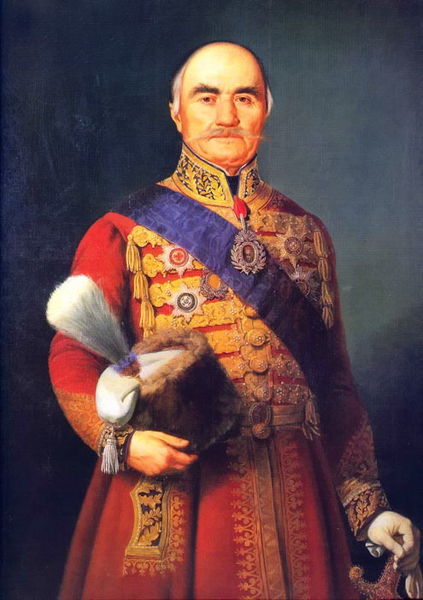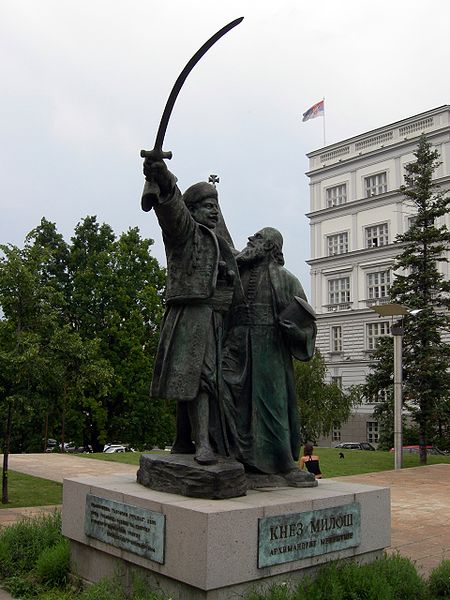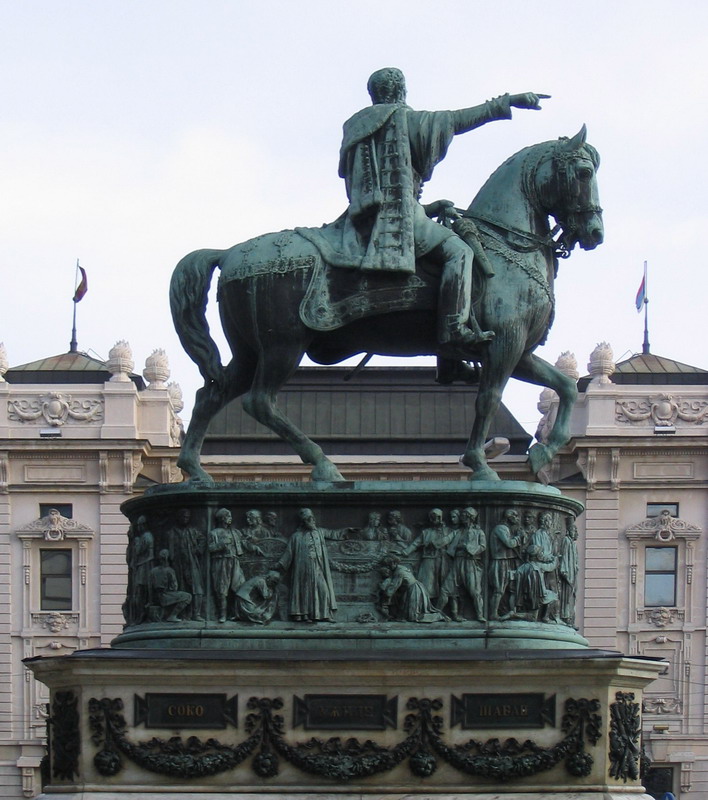<Back to Index>
- Mathematician Philippe de La Hire, 1640
- Painter Adam Elsheimer, 1578
- Prince of Serbia Miloš Obrenović I, 1780
PAGE SPONSOR

Miloš Obrenović (Serbian Cyrillic: Милош Обреновић; born Miloš Teodorović) (18 March 1780 [7 March o.s.] - 26 September 1860) was Prince of Serbia from 1815 to 1839, and again from 1858 to 1860. He participated in the First Serbian Uprising, led Serbs in the Second Serbian Uprising, and founded the House of Obrenović. Under his rule, Serbia became an autonomous dukedom within the Ottoman Empire. He is credited with starting the process of reestablishing Serbian statehood, as well as shaping the domestic and foreign policies of the modern Serbian state. Prince Miloš ruled autocratically, permanently refusing to share power. During his rule, he was the richest man in Serbia and one of the richest in the Balkans.
Miloš Obrenović was the son of Višnja Gojković (died 1817) and her second husband, Teodor Mihailovića (died 1802), a poor peasant from Montenegro. He was born in the village of Dobrinja, near Požega, in the Užice District. Miloš was the eldest of three boys born to the couple; Jovan (1787 - 1850) and Jevram (1790 - 1881). His mother had been married previously, to Obren Martinović (died 1777), and Miloš had a half-sister, Stana (born 1773), and two half-brother's, Jakov (1767 - 1817) and Milan (1770 - 16 December 1810). Following his half-brother's, Milan, death, Miloš derived the name Obrenović from the first name of Milan's father.
In his youth, Miloš was a servant in the family of Akso Ječmenica, an affluent cattle trader from Zlatibor. In 1805, Miloš married Ljubica Vukomanović (September 1788 - Vienna,
26 May 1843). The couple had 7 children whose names are known. It
is speculated that Ljubica had other pregnancies that resulted in miscarriages, stillbirths, or children who died shortly after birth, with some sources giving a number as high as 17. Miloš fought in the First Serbian Uprising until its very end in 1813. His half-brother Milan also took part in the Uprising, rising to become the commander (duke) of the Rudnik district.
After the rebellion collapsed, Miloš was among the few of its leaders
that remained in Serbia to face the vengeful returning Ottoman Turks. After the killing of Karađorđe Petrović, in 1817, Obrenović became the leader of the Serbs. In April 1815, he organized and led the Second Serbian Uprising. By 1817 the Turks defeated Miloš's army, but not before he negotiated with Maraşlı Ali Paşa (English, Marashli Ali Pasha; Serbian, Marašli Ali Paša), the Ottoman governor. As a result of the agreement, Serbia gained some autonomy, but remained under Ottoman sovereignty. Miloš Obrenović was left in power as its absolute ruler. Sultan's decrees of 1830 and 1833 expanded the same rights to a larger territory, and made Serbia a sovereign principality with Miloš Obrenović as hereditary prince. A Metropolitanate of Serbia was established in Belgrade, and made independent from the Patriarchate of Constantinople. Russia's status as the guarantor of Serbia's autonomy was also recognized. The
people of Serbia often rebelled against Miloš's autocratic and often
brutal rule. Following one such rebellion, he agreed to adopt a constitution in 1835. The move was opposed by neighboring Austria,
the ruling Ottoman Empire and Russia. It is believed that the three
great empires saw the constitution as a danger to their own autocratic
systems of government. Metternich's Austria particularly ridiculed the fact that Serbia had its own flag and ministry of foreign affairs. Miloš abolished the constitution at the demand of Russia and Turkey. Miloš abdicated in 1839 in favor of his sons – Milan, who died a few weeks later, and Mihailo,
who then became prince. Mihailo was deposed in 1842, and the family was
out of power until 1858, when it returned with Miloš restored as prince
for the last two years of his life.

